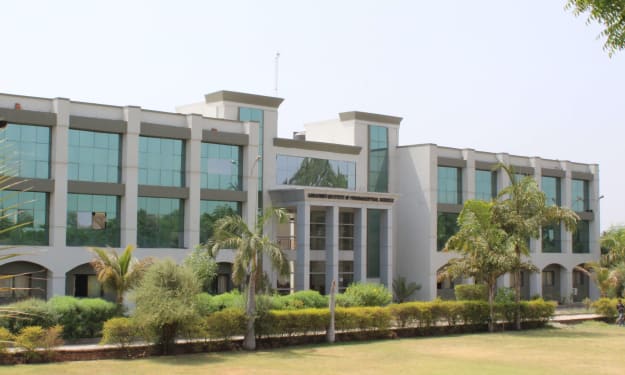Breaking the Silence: Advocating for Climate Justice
The Time is Now

No other crisis throughout the entire existence of humankind has been as widely encompassing and existentially threatening as the one caused by environmental change. The effects of environmental change have proactively begun to unfurl from one side of the planet to the other. Nonetheless, they are for the most part found in fragments and types of normal phenomena like burning summers, dangerous floods, or wild cyclones. For common individuals, these occasions give off an impression of being secluded, regional, and natural, with little extension for human intervention. In any case, it can't be rejected that environmental change is fossil-fuelled by human activities, and today it has taken the state of an approaching aggregate disaster.
Efforts are, however, being made through strategy intercession and mechanical progress to capture the further rise of global temperature and subsequently mitigate the effects of environmental change. What gets relatively less consideration in our reaction to environmental change is the worry about social justice. Whatever is straightforwardly or verifiably connected to collective life and prosperity can't bear to neglect its connection to social justice.
The idea of social justice depends on the possibility of just and fair treatment of the multitude of society. Practically speaking, social justice is perceived as a social arrangement that guarantees that everybody in the general public has equitable access to resources, rights, and opportunities. Nevertheless, this present reality is packed with separations and imbalances that track down a bunch of appearances in our regular daily existence.
The subject of civil rights about environmental change turns out to be huge because it compounds existing disparities, yet it can likewise bring about new types of imbalances and treacheries. We have previously seen that environmental change made the opposition for assets fiercer and its effects are felt lopsidedly inside a country and around the world. Destitute, and underestimated individuals are the first and the most awful casualties of this opposition. It might release a sort of friendly Darwinism by making the overarching disparities starker. The people who neglect to adapt to or are less prepared to adjust to these progressions may ultimately die. By and by, it ought to likewise be recognized that environmental change is neither simply regular as it appears nor is it directed by the Darwinian standard of normal choice. Maybe its anthropogenic person ought to cause us to comprehend environmental change — the two its circumstances and results — with regards to civil rights.
Living on the edge
Environmental change will complement the current imbalances further, particularly the financial one that separates the world into rich and poor. Destitute individuals come up short on means to endure the progressions set off by environmental change. Monetarily, socially, and even geologically they are put in an undeniably more weak situation with far more noteworthy openness to the effects of environmental change. Environmental change will prompt their further impoverishment, prompting more friendly turmoil. Continuous and savage nationwide conflicts in African nations as of late are not exclusively persuaded by political predominance; environmental change-actuated frailty of life and vocation is one of the major contributing variables. What is amusing is that individuals who will be the most terrible survivors of environmental change are the people who have contributed the least to its causes. By and large, destitute individuals or the less fortunate nations radiated a lesser measure of carbon than the created countries which thrived at the expense of the climate. Be that as it may, presently the way carbon restrain is being forced, will influence the less fortunate individuals and countries unreasonably. Nonetheless, this doesn't suggest that less fortunate countries are to be permitted to discharge their portion of carbon into the climate. What is required is genuine consideration regarding the inquiry of whether environmental activity is prompting social treachery by unjustifiably rebuffing certain individuals for the "wrongdoings" of others, and whether the survivors of this shamefulness are appropriately paid attention to and assisted.
The racket for environmental equity, thus, legitimately arises as a genuine interest. Environment equity moves our concentration from recognizing environmental change with climbing temperatures and the melting of icy masses to its ramifications in human existence. However, this isn't sufficient. For environment equity to actualize, we must understand that the outcomes of environmental change won't hit us all similarly. The distinction in encounters of environmental change, be that as it may, isn't restricted to the division between rich and poor. Orientation, race, clan, local area, culture — this multitude of elements request a more nuanced and comprehensive methodology towards environmental activity. Thus, the emergency achieved by a uniform yet lopsided vision of human advancement can't be relieved by a similar sort of uniform reaction. Instead of emphasizing and complementing more seasoned treacheries, environmental activity, directed by the standard of civil rights, may turn into a chance to fix past wrongdoings.
About the Creator
shanmuga priya
I am passionate about writing.






Comments
There are no comments for this story
Be the first to respond and start the conversation.